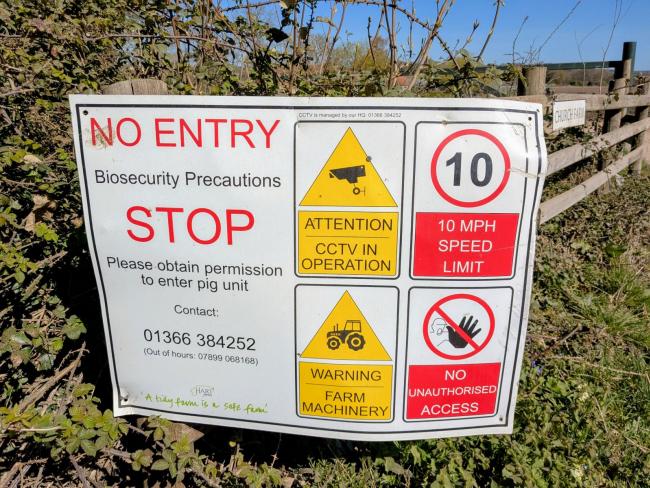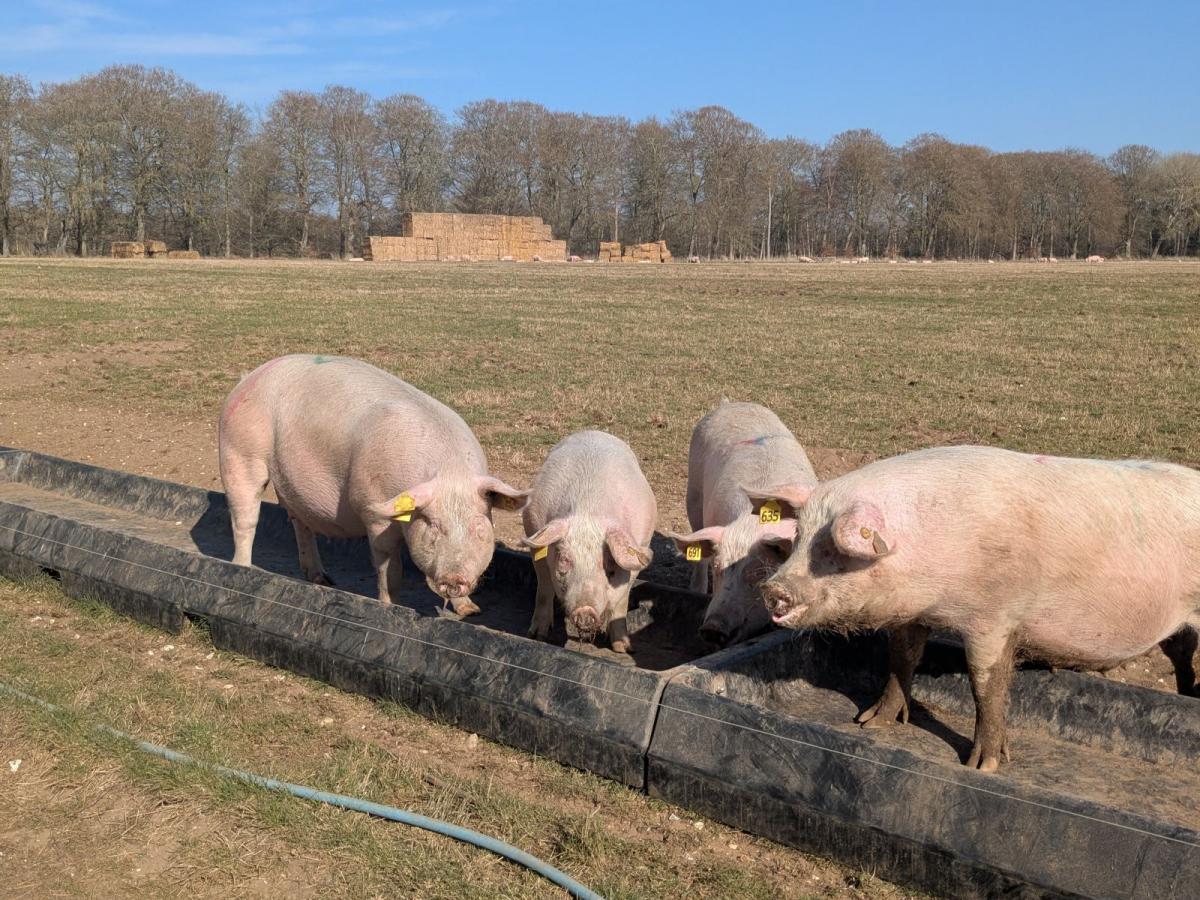23 April 2025

Biosecurity measures on a Norfolk farm. Photo Workers.
No one wants to see a reoccurrence of foot and mouth disease in Britain. The last outbreak in 2001 led to the slaughter and burning of millions of animals. For many weeks British farmers have been urging the government to act in response to cases on the European mainland.
This January Germany had its first outbreak in 40 years. Cases have now been reported in several other European countries. Farmers are also concerned about the risk of African swine fever which is has affected the pig industry across Europe since 2019. So far no cases have occurred in Britain.
Control
At the individual farm level, farmers have been taking what protective measures they can. But the real need is to control the import of infected meat.
‘The real need is to control the import of infected meat.’
Finally, on 12 April the Department for Environment, Food & Rural Affairs (Defra) implemented one small measure. It is now illegal for individuals returning from the EU to bring cooked or uncooked meat and dairy products into the UK. The government described this as a temporary ban. But farmers would be concerned to see it lifted in the near future.
Threat
A far greater threat remains with inadequate monitoring of legally and illegally imported meat through our ports. Famers and food producers highlighted the inadequacy of current measures, screening only a small percentage of goods.

Recently the Port of Dover has called a far more robust response from central government. The head of the port authority, Lucy Manzano, speaking to the parliamentary committee for environment, food and rural affairs on 4 February warned that illegal meat seizures at Dover have increased significantly since the introduction of new measures (the Border Target Operating Model) since Brexit.
She said that despite significant seizures of illegal meat, these measures are not robust enough. Dover Port Health Authority is operating at only one-fifth capacity due to funding limitations. Yet it has seized over 214 tonnes of illegal meat at Dover since September 2022, including 55 tonnes since the beginning of this year.
Manzano also said that legal commercial meat imports also need to be better monitored. Farming and food production companies have renewed their call for better monitoring of meat imports. The National Farmers’ Union has called for more investment in biosecurity to protect our food supply and health.
Token
The government decision to limit what individuals can bring in from the EU could be seen as a token action. So far it continues to ignoring the much wider problem which needs serious attention.
The importance of producing our own food and improving our own biosecurity measures grows greater by the day.
